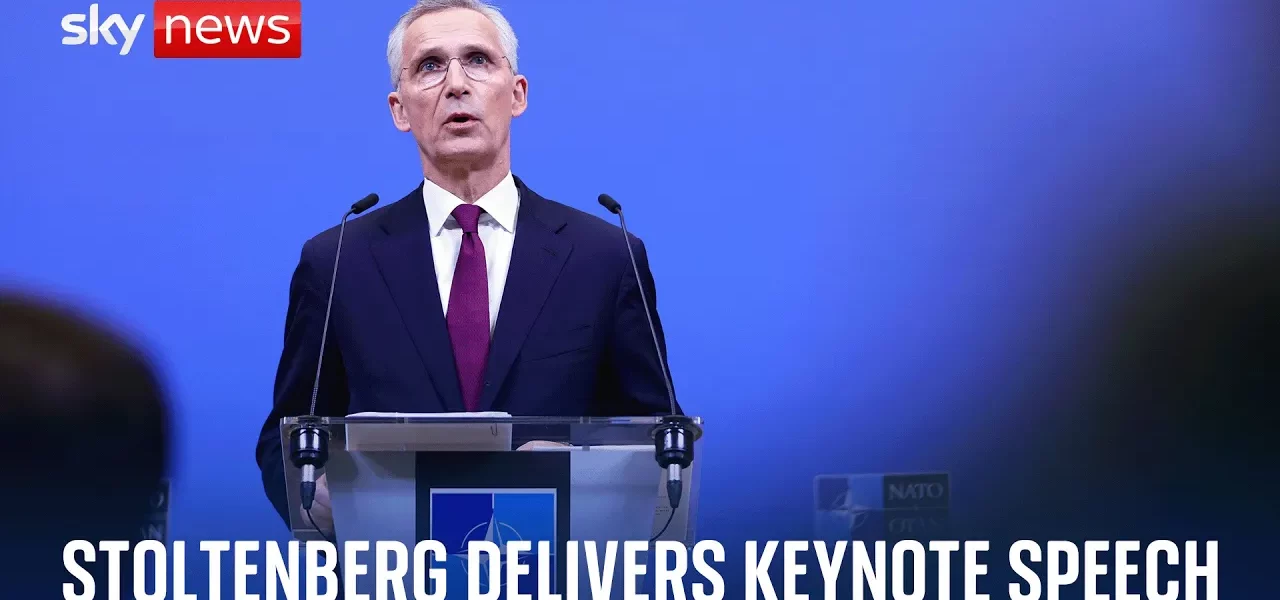25th Anniversary of NATO Membership: Reflections and Future Directions

In this article, we delve into the significant milestones of NATO, particularly focusing on the Czech Republic’s 25th anniversary of joining the alliance, the ongoing discussions surrounding defense strategies, and the importance of global partnerships in ensuring security in an increasingly volatile world.
Introduction
The year 2023 marks a monumental occasion for the Czech Republic as it celebrates the 25th anniversary of its accession to NATO. This anniversary not only symbolizes the historical transformation of Europe following the Cold War but also highlights the enduring commitment of NATO to adapt and respond to emerging global threats. The recent discussions and meetings in Prague emphasize the need for unity among member states as they navigate the complexities of modern security challenges.
The Significance of NATO Enlargement
NATO’s enlargement over the past 25 years has been a pivotal factor in reshaping European security dynamics. As the Czech Republic, Poland, Hungary, and others joined the alliance, a new era of collaboration and collective defense was established.
Historical Context
The decision to expand NATO in the post-Cold War landscape was met with apprehension. Many feared that inviting former Warsaw Pact countries into NATO could provoke Russia. However, the decision ultimately proved to be a cornerstone of European stability and security.
Successes of NATO Enlargement
- Enhanced collective defense capabilities.
- Increased political and military cooperation among member states.
- Promotion of democratic values and stability in Central and Eastern Europe.
Celebrating NATO’s 75th Anniversary
In conjunction with the Czech Republic’s 25th anniversary, NATO is also commemorating its 75th anniversary since its founding in Washington. This dual celebration provides an opportunity to reflect on NATO’s achievements while also addressing the challenges that lie ahead.
Upcoming Summit in Washington
The upcoming summit in July will be crucial as leaders gather to not only celebrate NATO’s history but also to discuss its future. Key topics of discussion will include:
- Deterrence and defense strategies.
- The ongoing situation in Ukraine.
- Strengthening partnerships with Asia-Pacific countries.
Key Areas of Focus for NATO
The discussions in Prague highlighted three critical areas that NATO must address to ensure its continued effectiveness and relevance.
1. Deterrence and Defense
Since 2014, NATO has shifted its focus back to collective defense, responding to the changing security environment, particularly due to Russia’s actions in Crimea and Ukraine. This includes:
- Increased troop readiness and deployment of battle groups in Eastern Europe.
- Higher defense spending commitments from member states.
- Enhanced air defense capabilities.
2. Support for Ukraine
The conflict in Ukraine has underscored NATO’s commitment to collective defense and support for partners facing aggression. Key points include:
- Provision of military aid, including ammunition, artillery, and advanced weaponry.
- Coordination efforts among allies to streamline support delivery to Ukraine.
- Addressing delays and gaps in military assistance.
3. Strengthening Global Partnerships
Recognizing that security is a global concern, NATO is focused on enhancing its partnerships beyond Europe. This includes:
- Engagement with Asia-Pacific partners such as Australia, Japan, and South Korea.
- Cooperative efforts to address shared security challenges, such as those posed by China and Russia.
- Increased collaboration in defense technology and intelligence sharing.
Conclusion
The 25th anniversary of the Czech Republic’s NATO membership serves as a reminder of the transformative power of collective security and the importance of unity among allies. As NATO prepares for its 75th anniversary summit, it faces a more complex geopolitical landscape that necessitates adaptability and a renewed commitment to mutual defense. It is vital for all member states to demonstrate their resolve through increased defense spending and enhanced support for partners like Ukraine. The future of NATO hinges on its ability to evolve and meet the challenges of a changing world. We encourage readers to stay informed about NATO’s developments and support initiatives that reinforce global security.
“`




